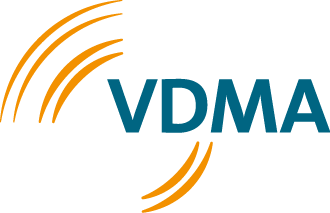The planned EU reporting obligations on sustainability are out of touch with reality for small and mid-sized industrial companies. Among other things, the planned rules of a new EU directive are supposed to cover the entire value chain. For this, medium-sized companies lack the in-house-expertise. Moreover, there are not enough experts available.
Frankfurt, 08/08/2022 - The EU wants to oblige companies to report on their measures to increase their sustainability. The Directive envisaged for this purpose (CSR-D) will de facto overburden many SMEs and in the end lead to a bonanza for consultants at best, warns the VDMA, Europe's largest associaton for mechanical engineering. "Our industry has a great interest in sustainability reporting that is relevant for the international capital market. Our companies contribute enormously to sustainable developments in the world with their products. However, in this form, for the large number of medium-sized companies that will be subject to CSR reporting for the first time, the requirements will certainly not be feasible. There is a threat of a huge, inefficient and unnecessary wave of bureaucracy rolling towards SMEs. Machinery and plant manufacturers neither have the expertise nor will they find the necessary reporting experts on the market," warns VDMA Executive Director Thilo Brodtmann. One thing is clear after the first round of consultations, which has now come to an end: the CSR reporting requirements should significantly decrease to remain manageable for SMEs and usable for the user of the information.
It would be better to reduce the bureaucratic burdens. We have more important problems to solve than writing more reports.Thilo Brodtmann, Executive Director of VDMA
Among other things, the VDMA criticizes the fact that companies are supposed to include their entire value chain in sustainability reporting, which in practice goes through many tiers and can include tens of thousands of parts in the case of many machines and systems. "This leads to enormous efforts in the companies, which are not affordable for medium-sized companies and are not justified by the advantages of such an all-encompassing approach. A risk-based approach must be introduced that starts where companies still have influence in order to obtain qualified information," Brodtmann demands. Especially in the current challenging times, policy should reduce additional burdens for companies to a minimum. "It would be better to reduce the bureaucratic burdens. We have more important problems to solve than writing more reports," warns the VDMA Executive Director.
In the VDMA's view, it is also imperative that European sustainability reporting is in line with global minimum standards. These are currently being developed by the International Sustainability Standards Board, for example. "A European solo run, as it is now emerging, not only harms international reporting with an extra burden on internationally active companies, but also directly jeopardizes our competitiveness and thus prosperity and employment in Europe," warns Brodtmann. The large number of individual disclosure requirements with varying degrees of consideration in the European directive weakens the comprehensibility, relevance and comparability of the information.

